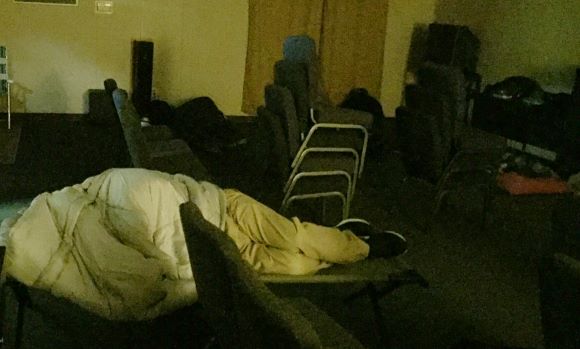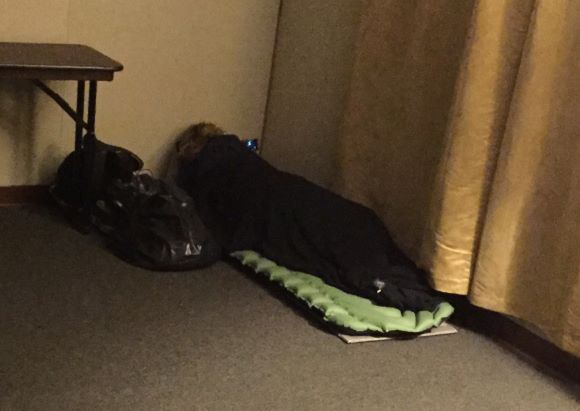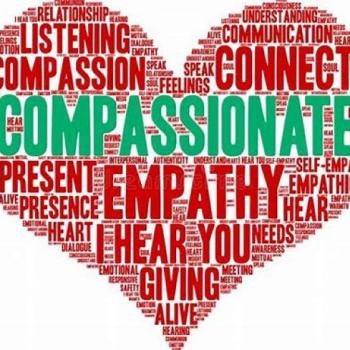“Sorry, I can’t help. You’re homeless.” (3 of 3)
Money Issues
Money seems a logical problem for the unhoused, right? But it’s not in the way you might imagine. The number one reason for homelessness is the lack of affordable housing. I personally had one full professor at San Francisco State University who was living out of her car because a professor’s salary would not pay for the smallest apartment in the Bay Area. And out of a class of 18 master students in my cohort, four were couch surfing because they couldn’t afford to rent even a room. What about where you live? Is there an area in your city that is being “gentrified?” The textbook definition is the process whereby the character of a poor urban area is changed by wealthier people moving in, improving housing, and attracting new businesses; that part sounds pretty good… But it continues. Typically displacing current inhabitants in the process. So, what does that mean to people who can barely afford to live in those areas? It means they will be forced to move even farther from their jobs, communities, family… just to find housing. This puts an even greater strain on them and their relationships. Here is a number I hope will make you think—70%-80% of the homeless in your area used to be your neighbors, from your neighborhood, from your block, two years prior. These people are “your people.”
Disability
Around 7% of people on the street were put there because they had a physical disability that would not allow them to work; crippling arthritis, excessively high blood pressure, and losing a limb are the leading causes. And now, in this semi-post-Covid world, long-haul Covid has put many out of jobs, security, and houses. People who had been living hand to mouth, without a family or any community to assist, may be diagnosed and not be able to do their jobs any longer. Or, just as bad, not being able to pay for their prescribed medication. They run out of money and quickly find themselves on the street. What about Medicare or the State? In many situations, the disability or medications are not covered by the State or Medicare’s list as a disability or “necessary.” So, the person loses everything they have and is now homeless.

Criminal Record
You probably think that most of the homeless have criminal records, and you’re right. But not for the reasons you think. About 22% have records on the first day on the street. But within the first 12 months, about 70% do. Why? There aren’t enough public and free restrooms in many areas, and in many communities, it is illegal to sleep in an open area, even in a tent. The police in many cities are mandated to bring the homeless person in, book them, and put them back out on the street. Which, to the homeless person, is demoralizing and has lessened their chances of getting a job by 80%. So, it’s a big catch-22, making it even less likely for them to get off the street.
Yes, undeniably, there is theft. No question. But please look a bit deeper. What is being stolen? Fillet mignon? Caviar? Cars? No. The top three things stolen are bread products, hygiene products, and things to keep them warm. It sounds like our society hasn’t changed since Victor Hugo wrote ‘Les Miserable’ where Jean Valjean was sent to prison for stealing bread for his starving family.
The “Other” Factor
These few things are by no means the only reasons homelessness exists. With 583,000 to 650,000 Americans homeless, there are 583,000 to 650,000 different stories. And, in many cases, it isn’t only one thing. There may be two, three, or more factors mentioned above that the person is dealing with.
So, What Can I Do?
Simply acknowledge them as a person. I know that sounds rather simplistic, but asking them their names, that simple act raises their dignity from “object” to human faster than anything else you can do. They leave the shell of “Oh, you’re just one of them…” behind. I always ask a person who is homeless their name and extend a hand to shake at the same time. It usually gets a look of “Why do you want to shake my hand?” followed by a smile and a long handshake with them telling me their name.
Another thing is having a conversation. You don’t need to get into the depths of why they are where they are. You don’t need to try to reform them. You just need to treat them and speak with them, not as a subordinate, subhuman, sub-being… but as an equal person, with all the dignity and care that comes with it. Talk about sports, the weather, whatever! Just let them know you are willing to see them as humans.
Next Level
If you moved and want to give something to the person, do it! Having something small at the ready. If you’re walking and going through an area that has the homeless in it, why not pick up a few gift cards and keep them in your pocket? Almost every grocery store and fast-food place has them now. Another card to consider is for a “Dollar Store chain” in the area.
If you’re driving, why not make “help bags?” These can consist of anything you want to put in them that a person on the street might be able to use. My wife and I usually have three or four in the car at any given time within easy reach. We usually have some for men and some for women. But the key is that anything helps, even just a smile. Between you and your family, come up with ideas of what you can give—small or large—to people you meet. Here are a few ideas:
For all:
- A bottle of Water
- A couple of power bars
- A candy bar
- A mini toothpaste tube
- A toothbrush
- Hotel-sized shampoo
- Hotel-sized bar of soap
- A pocket pack of Kleenex
- A piece of fresh fruit.
For men:
- A pair of men’s underwear (we buy several different sizes)
- A tee shirt (we buy several different sizes)
- Two pairs of socks
- Inexpensive gloves (we buy several different sizes)
- Inexpensive stocking cap
For women:
- A pair of women’s underwear (we buy several different sizes)
- A tee shirt (we buy several different sizes)
- Two pairs of socks
- Inexpensive gloves (we buy several different sizes)
- Inexpensive stocking cap
- Several feminine hygiene products
Next, Next Level
You! Get involved! Yes, you! We are all called to “be our brother’s (and sister’s) keeper. As Jesus said in Matthew 25 40, “Whatsoever you do to the least of these, you do unto me.” He wasn’t talking about the people you know and already have a familial or working relationship with. No. He was talking about those without clothes, the homeless, the incarcerated.
In every community, city, county, and State, there are internet pages of places looking for volunteers to help at shelters that feed or house the homeless. It doesn’t matter your age, sexual orientation, or financial level. All are welcome!
So, what’s stopping you? What if this was your brother, sister, mother, father? What have you done to show your humanity today?
“I was hungry, and you gave me something to eat; I was thirsty, and you gave me something to drink.” Matthew 25:35














